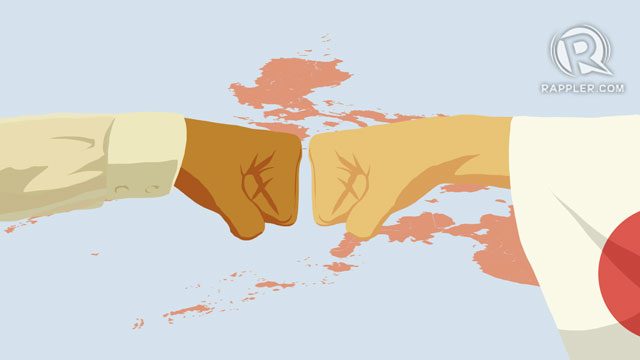SUMMARY
This is AI generated summarization, which may have errors. For context, always refer to the full article.

MANILA, Philippines – The Association of Southeast Asian Nations (ASEAN) and Japan recently signed an amendment to a free trade agreement that originally sought to gradually reduce tariffs on traded goods between the 10 members of the bloc and Japan.
The First Protocol to Amend the ASEAN-Japan Comprehensive Economic Partnership (AJCEP) Agreement was signed on March 2 during the 7th Regional Comprehensive Economic Partnership Intersessional Ministerial Meeting in Siem Reap, Cambodia.
What is this about? The AJCEP Agreement is supposed to encourage two-way exports to grow, improve production-sharing schemes, as well as include an economic cooperation program through technicall assistance and capacity building.
The First Protocol will add provisions on trade in services, movement of natural Filipinos, and investments. (READ: FAST FACTS: PH-Japan relations through good and bad times)
Trade Secretary Ramon Lopez in a statement said that the First Protocol “will ensure that Japan continues to be a strong anchor in regional trade.”
“With other initiatives that ASEAN and Japan are engaged in – such as the renewed ASEAN-Japan 10-year Strategic Economic Cooperation Roadmap – Japan remains an important partner of ASEAN in its economic integration agenda,” he added.
What does this mean? The First Protocol also covers better promotion, facilitation, and protection of Japanese investments in the Philippines. Japan has consistently been one of the Philippines’ closest allies and top trading partners. (READ: LIST: Deals Duterte brought home from Japan)
The agreement will also mean more opportunities for Filipinos to conduct business and work in Japan as one notable feature in the new First Protocol is the movement of service suppliers.
This means Filipino businessmen can now avail of either short-term or long-term business and investor visas.
Professionals in the following fields can stay in Japan for up to 5 years:
- Natural or human sciences
- Engineering
- Law
- Business management and accounting
- Humanities
(READ: Japan to accept 50,000 workers from PH under new hiring rules)
This can also extend to spouses and children of businessmen or professionals availing themselves of the visa. – Rappler.com
Add a comment
How does this make you feel?
There are no comments yet. Add your comment to start the conversation.